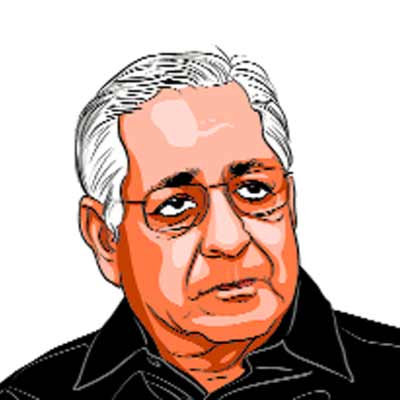Opinion Ayodhya Googly
After the conclusion of lengthy proceedings in which voluminous evidence was produced and extensive oral arguments were advanced,the Allahabad High Court reserved judgment on Ayodhya
After the conclusion of lengthy proceedings in which voluminous evidence was produced and extensive oral arguments were advanced,the Allahabad High Court reserved judgment in the Ayodhya matters which was scheduled for pronouncement on 24/09/2010. It is heartening that Hindu and Muslim organisations have made fervent appeals that the High Court judgment,whichever way it goes,should be accepted by the parties,subject to an appeal in the Supreme Court. Fortunately,the prevailing atmosphere at present is not surcharged as was the case in 1992. A belated application for deferment of judgment filed by one R.C. Tripathi was rejected by the High Court. Surprisingly,a division bench of the Supreme Court interfered and stayed delivery of the judgment till 28/09/2010,apparently in the hope that parties would arrive a settlement in the brief period of one week. Settlement of any litigation is desirable and especially the pending litigation. But when the main contesting parties have expressed their inability to settle the suits despite several past attempts,realistically settlement appears hopeless. But remember,hope springs eternal in the human breast and judges,all said and done,are human. Besides,miracles do occur. Perhaps that was the impelling motivation of the Supreme Court order. What will happen on September 28 when the Supreme Court hears the matter? No guesses. Bookies are already offering odds and taking bets.
Lord Bingham is no more
Lord Bingham who died recently had a remarkable judicial career. In a short span he became Master of the Rolls,Lord Chief Justice and a senior law lord in the House of Lords. Binghams outstanding judicial contribution was his judgment in the celebrated Belmarsh prison case in which he held that detention of persons on suspicion of terrorism for an indefinite period was illegal. In another landmark judgment,Bingham ruled that evidence obtained by torture,no matter what the pretext,was unreliable,offensive and inadmissible in court. Bingham was keen to receive inputs about the jurisprudence of other countries. He did not have an insular mindset. He had participated in the Indo-British judicial exchange in Delhi and was struck,or rather stunned,by the judicial evolution of our administrative law. I did not have the privilege of appearing before him in Court,but had the pleasure of lively conversations with him at private functions and especially during the Hay Spring Festival in Wales of which he was president and which he regularly attended. Tom Binghams modesty and informality were disarming. We shared some things in common: Attachment to the values underlying the Rule of Law which he regarded as the bedrock of a democratic state. His latest book,The Rule of Law,expounds this lofty concept with characteristic clarity. Another was fondness for Doctor Samuel Johnson to whom he often made reference in his talks: Let us see what the good Doctor had to say. Comparisons are odious. However all will agree with the tribute paid by Lord Judge,the Chief Justice of England and Wales,that Lord Bingham was the most respected,distinguished and admired judge of our times.
UN vindicates whistleblowers
Whistleblowers who blow the lid are detested by the establishments they expose. It is heartening that a UN Dispute Tribunal has vindicated a whistleblower,Artjon Shkurtaj,who served as chief of operations for UN operations in North Korea in the mid-2000s. Shkurtaj was outraged by the scandal-ridden operations and after unsuccessfully urging his superiors at the UNDP headquarters in New York to take corrective measures conveyed information to the US mission to the UN.
The UNDP responded by dismissing Shkurtaj and maligned his integrity. Three years later the UN Dispute Tribunal vindicated Shkurtaj and ordered the UNDP to pay its former employee $166,000 in compensation. Judge Memooda Ebrahim-Carstens ruled that UNDP violated Shkurtajs due process rights,damaged his career prospects and professional reputation,and caused him emotional distress. It is open to the Secretary-General to appeal the decision. However,it would be fitting if Shkurtajs courageous action of alerting the UN to instances of wrong-doing is appreciated and he is reinstated.


